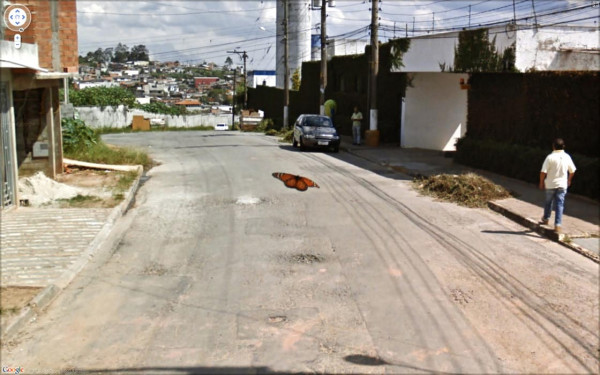Take Shelter
Lorenzo DiTommaso on the Future of the Apocalypse
The world is ending. It’s too late to stop, it’s too late to take shelter. Run screaming through the streets.
According to the Internet, the world is ending on Dec. 21. That’s when the Mayan calendar ends and that’s what popular culture in the information age has declared to be the end of days.
According to Concordia religion professor Lorenzo DiTommaso, people need to wake up and face the reality that the apocalypse isn’t coming.
“There is zero chance that there will be an apocalypse that most people expect. That is to say, a sudden end of the world brought about by some supernatural transcendental means. Zero chance of that,” he said.
Apocalypticism is the belief that an apocalypse will occur, whether by divine intervention or through societal, political or environmental catastrophe.
One of the major problems with apocalypticism is its self-fulfilling nature. It doesn’t matter that the end of the world never comes when it’s predicted, or that the Rapture—which has been ongoing since last May—hasn’t ascended anyone yet.
The rhetoric that has been constant for the last 2,300 years is that if that wasn’t the end, then it’s just a sign of the end. We’re getting closer.
The Rapture didn’t happen according to our calculations? Our calculations were wrong, but it’s still going to happen.
“It’s not a childish world view; it’s not an adult one either, though. It’s an adolescent one. It sees things in black and white and assumes that ‘Daddy,’ or someone—or something—is going to take care of things until the end.”
During the interview, DiTommaso stood up from behind his desk and opened his office window.
“We don’t have to go looking in ancient books to find apocalyptic timetables. We don’t have to decode Mayan calendars to find out when the end of the world is going to come […]. We have to do this. We have to get up from our chairs, we have to open the screens to our windows and we have to look out our windows and see [the] catastrophic degradation of our planet. That’s the only apocalyptic prediction. To ignore that, because God or whoever is taking care of it, is not an adult way of looking at the problem.”
The current favourite apocalypse scenario is the end of the Mayan calendar. DiTommaso blames the Internet for this hysteria.
“What is unique about the 2012 prediction, and this is what I find fascinating, is it’s really the first public apocalypse. In the ’70s and ’80s when these cranks took up the Mayan calendar and gave it an apocalyptic veillance, it coincided shortly after with the rise of the Internet and what it could bring, which is public discussion.”
Take this idea that the Mayans had an end date for the world as we know it and add on every other idea of the apocalypse: global warming, the Rapture, the 2011 tsunami that rocked Japan, the giant vortex of plastic garbage in the Pacific—the list goes on and on.
Then add all of the previous apocalypse predictions that have come and gone—don’t forget that if it didn’t happen when they said it would, it just means that there’s more proof that the apocalypse is going to happen—and compact it into one giant apocalyptic heap of garbage.
“A hundred years ago, there’s no way you would have known about any of this. […] But now, with a click, just punch in ‘apocalyptic scenarios’ and you have [720,000 results on Google in 0.4 seconds]. […]
“All of a sudden you have the whole world, globally and historically, to search through. At the same time, that infinite data horizon is marked by a shallowness because all these motifs and this information has been dis-anchored from their original traditions.
All this information, DiTomasso says, is “remove[d] from a theological basis where [it] had a richness of meaning and an intensity of theological depth, and really to convert [it] to mere data to be used to whatever purposes you want.”
DiTommaso will be giving a talk on apocalyticism tonight at 6:00 p.m. in the D.B. Clarke Theater in the Hall Building (1455 de Maisonneuve Blvd. W., H-110).

_900_675_90.jpg)


__600_375_90_s_c1.jpg)


_600_375_90_s_c1.jpg)